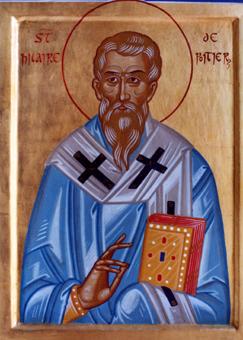|
|||
|---|---|---|---|
| This weekly bulletin insert complements the curriculum published by the Department of Christian Education of the Orthodox Church in America. This and many other Christian Education resources are available at http://dce.oca.org. | |||

In his letter the Apostle James Writes about the gift of speech (3:1-4:6). He describes the power speech can have for good or evil, depending on how we use it. Though the tongue is a very small instrument, he writes, it is a fire, and even a huge forest can be set ablaze by a tiny fire. James strikingly contrasts the two ways we can use our tongues to speak: "With it we bless the Lord and Father, and with it we curse those who are made in the likeness of God. From the same mouth come blessing and cursing. My brothers and sisters, this ought not to be so. Does a spring pour forth from the same opening both fresh and brackish water? Can a fig tree, my brothers and sisters, yield olives, or a grapevine yield figs? No more can salt water yield fresh" (3:9-12). But it is not only the way we speak that's important. We also need to be sure that the particular words we choose are meaningful, and faithful to the truth. Empty words, meaningless chattering words, are a waste of the gift of speech, and lies of course are violations of the purpose of speech. One saint who wrote about the need for meaningful and truthful words is Hilary of Poitiers. Born in Poitiers, France, Hilary had an excellent education which included Greek—unusual for a fourth-century Western European. Married and a father, he was so admired in Poitiers that he was elected bishop in about 353. But only three years later he was banished to Phrygia for several years. This was the result of his arguments against heretical Arian teachings. His writings, and his defense of Saint Athanasius, were so compelling that he is sometimes called the "Athanasius of the West." But the emperor was not pleased, and allowed Hilary's enemies to banish him.
Even in exile, Hilary continued to govern his diocese in France. It was during this time that he studied some of the Eastern Fathers' writings, and deepened his understanding of the Church's teachings about the Trinity. This enabled him to write about the importance of using the right words, both meaningful and true, to speak about the Three Divine Persons: "For one to attempt to speak of God in terms more precise than He Himself has used—to undertake such a thing is to embark upon the boundless, to dare the incomprehensible. He fixed the names of His nature: Father, Son, and Holy Spirit. Whatever is sought over and above this is beyond the limits of perception, beyond the embrace of understanding." Saint Hilary would object to the modern effort to find words other than Father, Son and Holy Spirit to identify the Persons of the Trinity. He would agree with James that words and speech are important, because both have been given to us by God. |
|||
